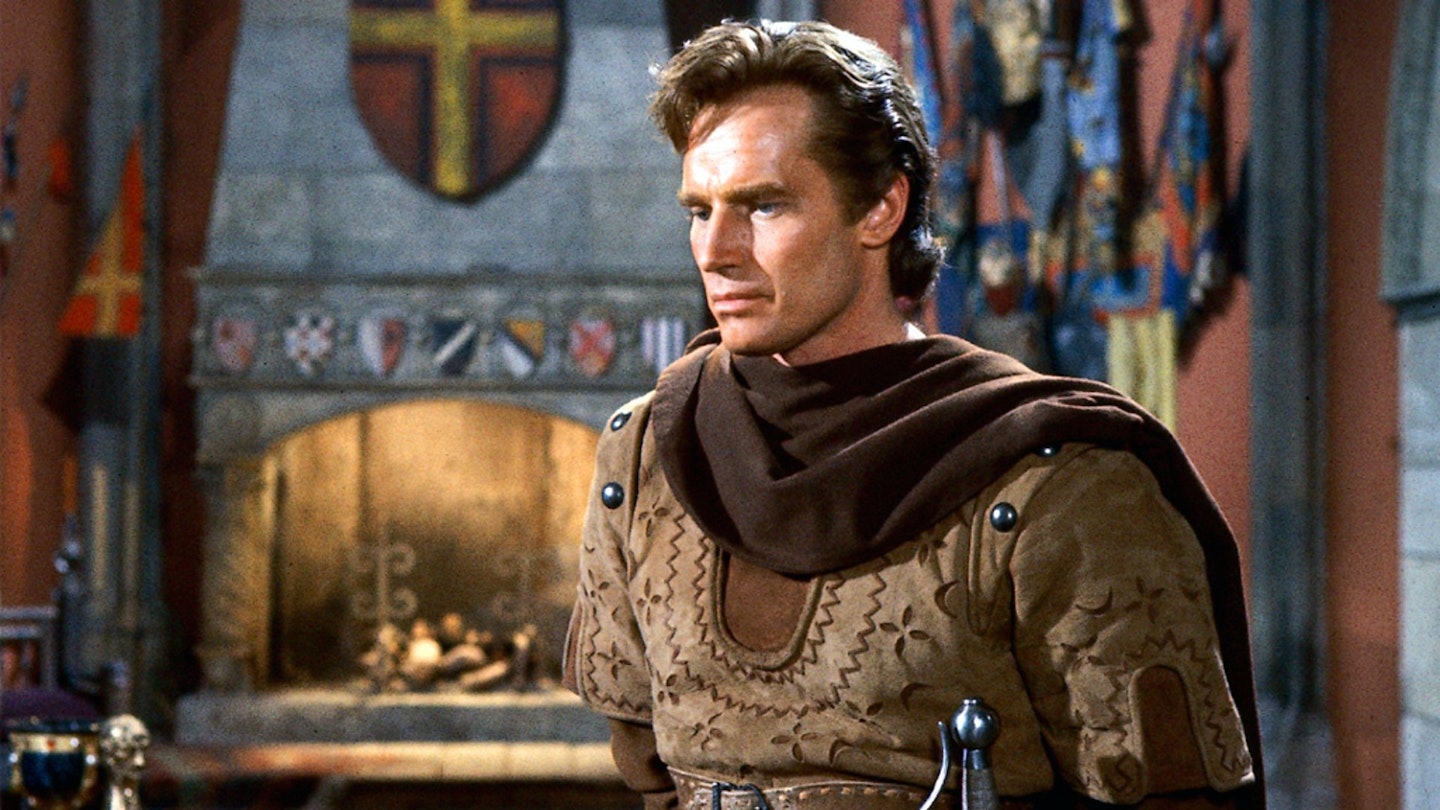The first thing to say about this epic that seems to span entire Bank Holidays with its golden hued majesty, is that for a crowd of noble Spaniards they look distinctly Aryan. Only the Italian Sophia Loren looks in anyway like she might hail from the Mediterranean regions. This is a film willing to dispense with realism as long as it adheres to that school of bulging epics, in which Charlton Heston forever rested the world from the brink of history by glowering and twitching his bronzed jaw. You could class this as the final piece in a trilogy of epics, following The Ten Commandments and Ben-Hur, but it is much harder work than those Biblical piles, a twisting, turning, achingly slow journey to the final battle.
Heston seemed to be working his way through the big league of directors, after Cecil B. DeMille and William Wyler, he worked here with Anthony Mann whose legacy of macho Westerns seemed a good base for this tale of unflagging nobility. But neither he, nor Heston, nor the familiar ream of screenwriters, find much of interest within the armour clad soul of Diaz. He’s Lawrence Of Arabia, unifying the Christian kings of Spain, but without the tormented soul.
This is a man so resolute he might as well be made of marble. And Mann directs his journey like he was building a cathedral, every scene is pristine and huge, but utterly prescribed. How could the 11th century be this clean? How could the grand love between Diaz and the swooning Jimena (Loren pouting for Christendom) be so sterile? Good deeds are so bland when there are no flaws to be bridged.
Everything about the film radiates a kind of assumed glory. The battle scenes are mighty, the locations vast, but there is not enough here to grant the watcher the surge of triumph of Ben-Hur. The craft on show is splendiferous, the score, by Miklos Rozsa, suitably soaring, but even by the famous rousing ending where they tie El Cid’s corpse to a horse to lead the charge, still feels like it’s pretending.
